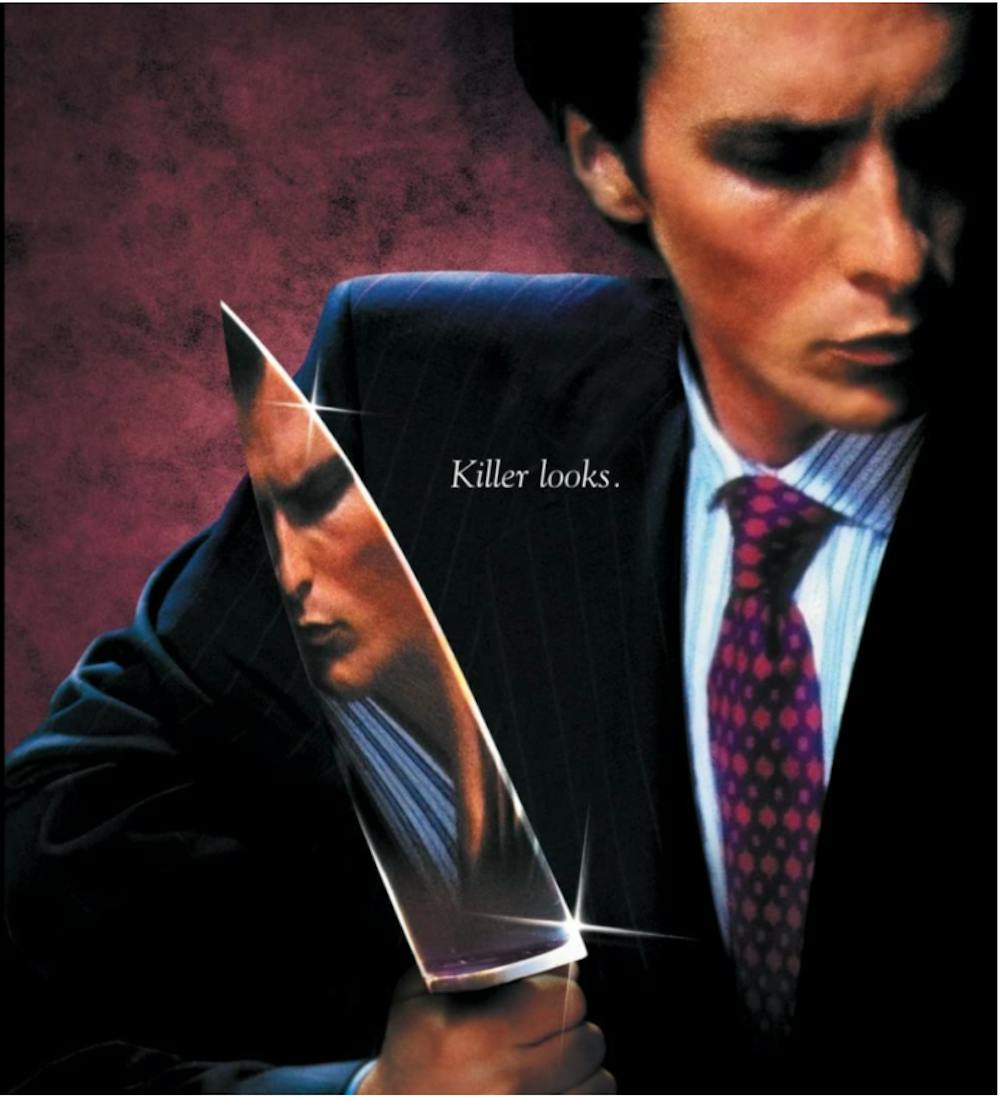By Maia Venuti
Staff Writer
“American Psycho” (2000) is a drama/thriller film that chronicles the daily goings-on of 27-year-old Patrick Bateman (Christian Bale), a young Wall Street executive, and his slow descent into insanity. Alongside Bale, the film features a star-studded cast with Jared Leto, Willem Dafoe, Chloe Sevigny and Reese Witherspoon. Over the past two decades, “American Psycho” has carved itself into American pop culture, and the film is just as relevant today as it was at the time of its release. However, in recent years, I started to notice a disconnect forming between the original purpose of the film and those who are fans of it today.
A discussion and analysis of the original message behind “American Psycho” cannot be done without first talking about the film’s writer and director, Mary Harron. Many people do not know that “American Psycho” was both written and directed by a woman, which to me is shocking because it changes the entire perspective of the film.
Mary Harron wrote “American Psycho” from the point of view of an outsider looking in on this extremely narcissistic, superficial, and quite frankly, ridiculous lifestyle that is exclusive to men. The film is extremely accurate, with everyone wanting to fit in so desperately that there is absolutely no individuality in these men, hence why they all look the same. Any kind of uniqueness or individualism is something that Patrick is not only incapable of understanding, but something he is absolutely disgusted by. This can be seen with Luis, a coworker of Patrick’s, who dresses differently from the rest of the men, and does not have the same cold and callous personality that Patrick and the others do. Luis is mocked by his coworkers behind his back for being different from the others because any kind of variation in this bizarre, dystopian-esque world is socially unacceptable.
Harron wrote this film as a piece of satire, but it is written in such a way that it cannot be seen as satire by many, primarily male viewers of the film. In my opinion, Harron had written the most brilliant piece of satire to come out in the twenty-first century. However, the original message, a scathing critique and mockery of yuppie Wall Street culture, has slowly begun to fade away with time, and of course, with the help of primarily male fans of the film.
At its core, “American Psycho” is a satirical work meant to make fun of the yuppie world of Wall Street business executives, but it was written to appeal to and be easily marketed to the same men it is mocking. The writing is so accurate and spot-on to the lifestyle, that men who lead a life like Patrick see him as a relatable character, which is where I feel like the true brilliance of the film comes from.
In recent years, I have begun to notice an increase in the amount of men who find Patrick Bateman to be admirable, relatable or a character that they personally identify with. The men that identify with Patrick see the film in the exact opposite way, interpreting it as serious and seeing Patrick as the hero of the film, which is exactly what Harron wanted these male viewers to think.
The real satire of “American Psycho” is the relatability it provides for the self proclaimed Patrick Bateman’s of the world. Much like Patrick, the men who relate and identify with his character see themselves as being different from everyone else emotionally, yet try so hard to fit in. They, like Patrick, are unaware of the fact that everyone around them is laughing at them.







